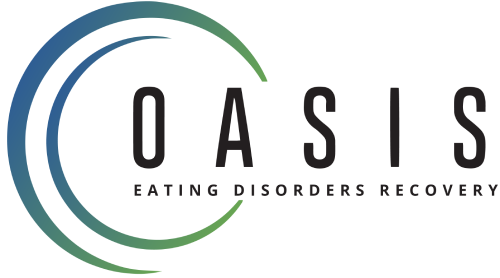It’s not easy to get over an eating disorder. It takes a multi-pronged approach to treat eating problems. Treatment for eating disorders addresses the disease’s psychological and physiological elements. Dietary guidance, weight restoration, medical stabilization, psychotherapy, and pharmaceuticals may all be part of the process.
Although difficult, there are ways to increase your comfort while undergoing therapy. As you attempt to overcome your eating disorder, keep the following tips in mind.
Make Use of Positive Self-Talk
Several studies have highlighted the importance of self-talk in the onset and maintenance of eating disorders. One study linked dysfunctional and negative self-talk to greater eating disorder symptoms and severity.
Trace the Origins of Your Eating Disorder
The latest research demonstrates that eating disorders have numerous causes, including hereditary and cultural influences, which were previously thought to be the major cause of disordered eating.
Accept the Help of Loved Ones
The availability of a dedicated treatment team has been shown to improve outcomes for patients suffering from eating disorders. In most situations, the support of a therapist, dietician, and doctor is necessary, and willpower, self-help literature, and independent work are not adequate substitutes. These experts have the necessary skills and experience to aid in your recuperation.
Self-treatment for bulimia and binge eating disorder may be an option if you cannot access specialized therapy for financial or other reasons.
Believe in Yourself
Eating disorder treatment and recovery can be time-consuming and financially draining. It’s a sad reality that many people go without medical attention because they can’t afford it.
Treatment for eating disorders can be time-consuming and expensive. Estimates for the monthly cost of eating disorder therapy range from $30,000 to $40,000. It is crucial to understand your treatment options and insurance coverage.
Never Lose Hope
Diseases involving one’s relationship with food are often lethal, and this includes eating disorders. Those with anorexia have a death rate that is five times that of the normal population, according to studies. Lifespan and quality of life are two areas that suffer significantly when someone has an eating disorder.
Rely on Your Most Dependable Friends and Peers
Staying quiet about challenges in life might make you feel ashamed, which in turn can keep you from reaching out for help when you really need it. Those who have already gained your trust should be your first choice for hearing about your experience. Telling them what’s going on will increase the likelihood that they can be supportive.
Take Your Time
It may take years for some people to feel completely better. A lot of people have trouble keeping from falling back into old habits. Maintain hope in your ability to heal, and communicate any setbacks to your treatment team.
Getting better from an eating issue is rarely a straight line. Both the rate of growth and the number of setbacks might be unpredictable. Recovery can take months or even years; for some people, it may be a lifelong process.
Follow the Advice of Your Treatment Team
The members of your treatment team should have extensive expertise and education in dealing with eating disorders. Don’t ignore their advice when it comes to making adjustments, no matter how unsettling they may seem.
Strive to Overcome Your Fears
In order to overcome an eating problem, you will need to overcome some of the things you may have been trying to avoid, such as eating particular meals, feeling full, and not exercising because of worry. To confront these challenges head-on, discuss a strategy with your treatment team.
Conclusion
Eating disorder recovery is possible with the right support in place. Finding a treatment team that understands your unique needs and is dedicated to your recovery is important. You will also need to be honest with yourself and take steps to address the underlying causes of your eating disorder. With time and patience, you can overcome your eating disorder and reclaim your life.
If you are looking for a well-trusted eating disorder recovery center that would help you with your compulsive overeating or food addiction, look no further than our expertise here at Oasis Eating Disorders Recovery. We understand that living with an eating disorder takes a toll on the individual, as well as their friends and family. We are here to offer support, compassion, and hope as you navigate the recovery journey. Call us today to book your first eating disorder session with us.

